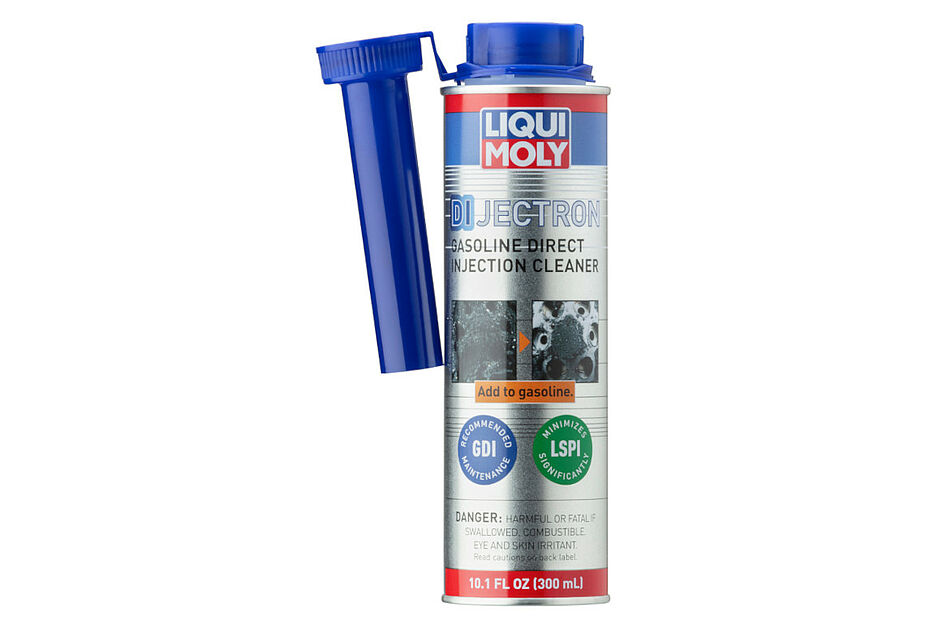- 10/29/2020
New additive from LIQUI MOLY to prevent engine damage
October 2020 – More and more modern engines are at increased risk from LSPI (low speed pre-ignition). Similar to classic engine knocking, this can lead to serious engine damage. LIQUI MOLY has developed an additive that significantly reduces this risk: DIJectron.
Modern, high-performance engines with direct injection, suffer from an increased risk of premature ignition at low engine speeds (LSPI – low-speed pre-ignition). Here the gasoline/air mixture ignites spontaneously in the combustion chamber before the ignition spark is created. This knocking can cause serious engine damage. This phenomenon is not entirely understood yet. The contamination inside the engine certainly plays a role.
This is where LIQUI MOLY's new DIJectron comes in. It contains polyetheramine (PEA) as an active ingredient. “Active PEA is a highly effective cleaning chemical that removes even stubborn deposits from injectors, pistons and combustion chambers,” explains David Kaiser, Head of Research and Development at LIQUI MOLY. “And, if used regularly, it provides lasting protection against new carbon deposits.”
These deposits are considered an essential factor for LSPI. Modern direct-injection turbocharged gasoline engines have a highly stressed injection system. The injection nozzles reach directly into the combustion chamber and are therefore exposed to high temperatures, pressures and the influence of combustion residues. Deposits form at the nozzle outlet openings within a short time, ensuring that the gasoline is no longer atomized so finely. This worsens the emission values and increases the fuel consumption. The deposits can begin to glow due to the high temperatures, which can then lead to LSPI.
DIJectron can be used at any inspection. It is so effective that it only has to be added every 2,400 miles. It is suitable for all cars with a 4-stroke gasoline engine, especially for direct injectors but also for cars with intake-manifold injection.
LIQUI MOLY has over 60 years of experience with additives and is the undisputed market leader in its home country of Germany. “Additives are useful chemical tools that every professional should have in his toolbox,” says David Kaiser. “They can solve many problems faster, easier and more cost-effectively than mechanical tests.”




